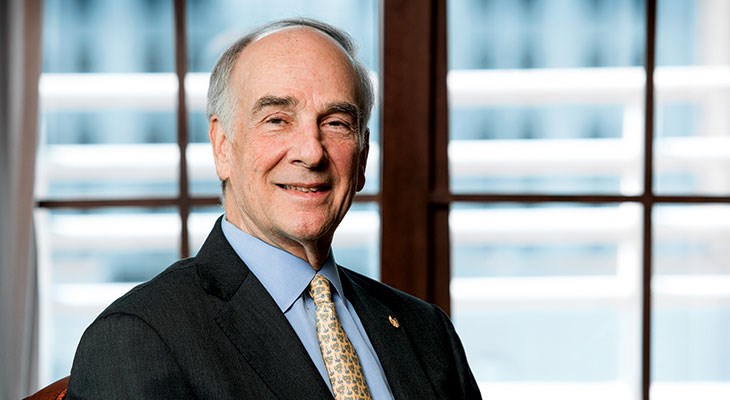Chris Donahue was excited last July when Federated Investors’s six-year pursuit of Hermes Investment Management came to a satisfactory end. Federated acquired a majority interest in the London-based company for $340 million.
While Federated was a larger company — about $400 billion in assets to Hermes’ $47 billion — Donahue is incorporating Hermes’ investment strategy, which factors in environment, social and governance (ESG) criteria, in his firm’s portfolio.
“Hermes is known as an integrated ESG manager, which means that even though we would do governance and risks and all of those things, they do it in a much more organized fashion and function under different laws,” he says.
The president and CEO believes this kind of investing will only grow more popular in the coming years, which is why he made the Hermes deal.
Changing business operations through active investing
In the U.S., active investing begins with good stewardship through fiduciary duty because this says you’re interested in the best possible performance, Donahue says. In Europe, they use ESG to analyze companies, believing that these factors ultimately enhance performance. In fact, it’s often required for things like a mandate from a Dutch pension plan.
In either case, active investors might look at a company in terms of its long-term sustainability, he says. For example, if you’re looking to buy a coal company, is the company improving its mine air quality, adding better scrubbers to its plants or diversifying into natural gas?
Hermes, however, goes a step further through its equity ownership services (EOS) team of engagers.
“Hermes has 26 of these individuals who go to companies in order to ask them questions and get them to improve their operations on various ESG themes,” Donahue says. “They will go into companies like that Brazilian mining company (Vale) and ask the leadership there what they’re doing about their ponds and mines and things. And after not receiving completely satisfactory answers, they sold the stock.”
EOS activities are based on the premise that companies with informed and involved shareholders are more likely to effectively manage risk and achieve superior long-term performance than those without.
When the EOS team engaged with Volkswagen on governance matters, he says, it felt the company didn’t have the best governance and got out of the stock. In other places, the EOS team engaged with businesses to improve the supply chain, such as encouraging food companies to limit antibiotics in cows, pigs and chickens.
Learn more about Federated’s operations and the Hermes integration in Smart Business Pittsburgh’s June issue.
Where the marketplace is heading
While Federated isn’t the only active manager in financial services, Donahue says it’s the most strongly committed to integrating ESG data, such as its plan to add it to Federated portfolio manager work stations as quickly as possible.
“The whole idea here is to enhance the fiduciary duty, improve the performance of the company, and make for a long-term sustainable company,” he says.
Donahue believes that as millennials make more financial decisions, they don’t just want a good future and retirement, they also want things that align with ESG. “It’s the reality of the marketplace,” he says.
Federated is creating its own U.S.-based EOS team. Donahue wants to provide EOS as a strong service for asset owners to go engage companies on issues that are important to them.
“This is exactly what is done by Hermes in London,” he says. “Hermes has about 50 clients, with about $500 billion in assets, that these 26 engagers work for.”
So, the engagers will meet with those 50 clients to determine which issues to work on and which companies to engage with.
“Because you can’t engage everybody all at once,” Donahue says. “There are limits. You’ve got to focus power on what’s really important to those underlying asset owners, and where you feel you can advance the ball, in terms of enhancing the company’s performance for the underlying clients.”




